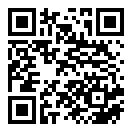Abstract:
From Soroush’s perspective, revelation is the same as dream, and dream is the same as revelation. He explicitly considers the Quran to be a dream and the Prophet to be the narrator of prophetic dreams. Citing the opinions of some scholars, he argues that Gabriel is a product of the imagination power of the Prophet and is in fact one of his attributes. From his perspective, the existence of contradictions and the use of ambiguous words in the Quran support the theory of “prophetic dream.” Using the descriptive-analytical and critical methods, this article examines Soroush’s claim and makes it clear that his claim is basically distorted and his references are incomplete; because: 1. The dream that precedes the coming of Gabriel is not a revelation, but rather a quasi-revelation and is one of the causes and precursors of prophecy. In fact, Gabriel delivered the message and brought the Quran to him after that. Therefore, the dream revelation is a type of inspiration before the descent of the angel, while the prophetic revelation and the descent of the Quran through the angel take place in wakefulness. 2. According to the doctrine of the perfect man, man’s knowledge of the levels of the world is the same as his knowledge of his own levels, which is of the type of knowledge by presence. Therefore, there is no error in it. 3. Although the Quran was not completely and instantly revealed for material compilation, the existence of its intellectual version justifies the application of the word "book" to it.
 / دکترای فلسفه مؤسسة آموزشی و پژوهشی امام خمینی (ره) / mortezazadehbameri@gmail.com
/ دکترای فلسفه مؤسسة آموزشی و پژوهشی امام خمینی (ره) / mortezazadehbameri@gmail.com





